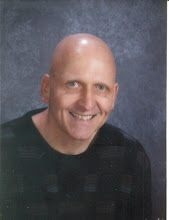"Lazzari's Sports Roundup" -- 07-23-05
He was known as "Hammerin' Hank"--long before a guy named Aaron thrilled Braves fans with his many home runs. His name was Henry Armstrong, and no discussion about the greatest sports feats in history should transpire without mentioning the fighter who once pulled off the unthinkable.
After failing to make the 1932 Olympic squad, Henry Armstrong's professional boxing career didn't begin quite the way he had envisioned; he lost three of his first four fights--even being knocked out by a man named Al Iovino in the third round. But as he approached his 20th birthday, young Henry realized more and more that endurance could be his best weapon; his abnormally slow heartbeat enabled him to rarely get winded during fights and allowed him to fight at an almost unstoppable pace--which he'd concentrate on and use to his future advantage. He'd reel off eleven straight wins thereafter, dominating opponents with a relentless attack and pressuring his foes immediately from the opening bell. He developed a helluva chin, too, and would only be knocked out one more time--much later in his career. It was in 1937, though, that Henry Armstrong had arguably the greatest year of any fighter in history, going 27-0 with 26 knockouts--including an October knockout win over Petey Sarron for the featherweight (126 pounds) championship. But this would only be the beginning for the rising star who, at one time, had simply wanted to go to college and become a doctor in order to care for his fourteen siblings.
The year was 1938, and one Henry Armstrong was a dominant featherweight who had his sights set on much bigger things. After knocking out nine of his first ten opponents that year, Henry challenged welterweight king Barney Ross for the 147-pound championship--yielding at least nine pounds to his opponent on the night of their storied bout. Armstrong's swarming style simply overwhelmed the talented Ross while Henry easily captured a 15-round decision; it's been hinted that Armstrong even "carried" his bloodied opponent the last few rounds simply out of respect. After sending Ross into retirement, Armstrong would add to his remarkable legacy just two-and-a-half months later--challenging lightweight (135 pounds) champion Lou Ambers and defeating him in a 15-round, bloody decision. Yes, toward the end of 1938, Henry Armstrong had become the only man to ever hold three world titles simultaneously and had truly put his stamp on boxing like few others had before--OR since.
Ultimately, Henry Armstrong would lose to Lou Ambers in a lightweight rematch and abandon his featherweight crown. However, he would still continue to dominate the welterweight division--defending his crown successfully a mind-boggling NINETEEN times during a two-year stretch before losing to Fritzie Zivic in New York in late 1940. At that time, many thought that Armstrong was simply worn out from the "buzz-saw" style he had maintained for almost ten years and simply had very little energy left--although he had fought MIDDLEWEIGHT champ Ceferino Garcia to a draw earlier that year and most likely should have been awarded his fourth title. A still-relatively-young Henry Armstrong retired in 1945 with a lifetime record (depending on the source) of approximately 150 wins, 21 losses, and 9 draws--with at least 100 knockouts.
Sadly, Henry Armstrong battled alcoholism and drugs in his post-fight days; perhaps the inability to ever come close to equaling his former successes while in early retirement led him to the bottle. But after gathering himself with the same type of resolve and determination that had once rendered him the "king of boxing," he became an ordained Baptist minister in 1951 and devoted his life to helping underprivileged kids. He taught boxing to youngsters and became a polished, well-received public speaker; a place called "Youthtown"--in Desert Wells, Arizona--was constructed through his persistent efforts. A blind, poverty-ridden Armstrong died basically penniless in Los Angeles in October of 1988; it was soon discovered that his heart--which had enabled him to fight in the torrid fashion that still leaves boxing historians speechless--was, indeed, a third larger than that of an average person.
The opinion here is that Henry Armstrong was perhaps the most versatile boxer ever; famed boxing writer Bert Sugar has listed Henry as one of his "100 Greatest Boxers of All-Time" and once dubbed Armstrong as the second best in history to the great Sugar Ray Robinson. Sure, there have been the Hearns, Leonards, and Durans over the years who've accumulated titles in different weight classes, but one thing must be remembered in discussing the era of Henry Armstrong: there were NO "junior-this," "super-that" divisions where boxers could pick up titles like dry cleaning. Most important of all, Armstrong held three world titles SIMULTANEOUSLY in 1938, folks--ranging in weight classes that spanned 126-147 pounds.
Yes, the unthinkable, the unfathomable--Henry Armstrong possessing three championship belts at the same time. It's a feat that remains often overlooked when talking about the great sports performances/records of all time--but one thing's for sure: it's an accomplishment that will forever remain fresh and in the forefront of the mind of one very impressed/awed sports scribe.
Bob Lazzari
Reprinted by permission of the Valley Times.



0 Comments:
Post a Comment
<< Home